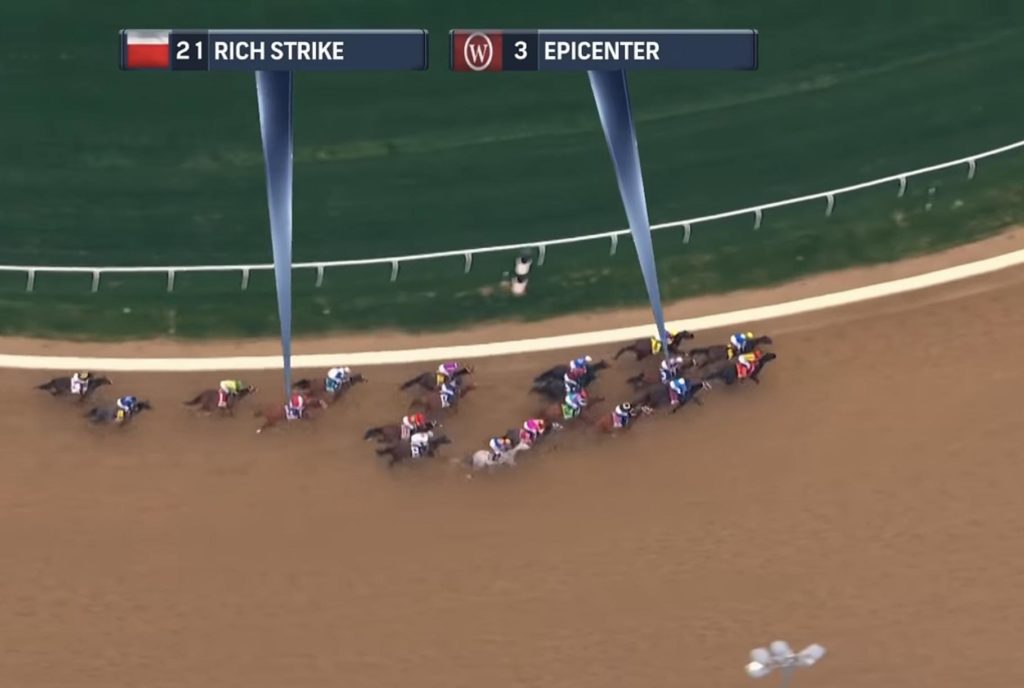
It was a weekend of improbables.
I was skimming multiple news sources – the New York Times, Wall Street Journal, and the Detroit Free Press, along with the industry trades and other web publications. And as is usually the case, I was sitting in my neighborhood Starbucks thinking about blog topics for this week.
Of course, I was looking for interesting media stories, but it was hard to ignore the sensational results of the Kentucky Derby where the longest of longshots – Rich Strike – beat 80-to-1 odds and other stumbling blocks – to blow away the field at Churchill Downs on Saturday. I’ve got video of the last segment of the race, an amazing overhead shot from NBC Sports that is positively jaw-dropping.
And while perusing all this news, I almost missed an important story, at least to me. I first saw it in Inside Radio, and didn’t pay much attention to it. It was another of those format count studies, usually a pretty good barometer of radio industry trends.
Fortunately, the headline grabbed me:
“More Stations Moving Classic Rock and Contemporary Christian”
The latter format is one Jacobs Media has become more involved with these past few years. For nearly a decade, we have partnered with Michelle Younkman and her Christian Music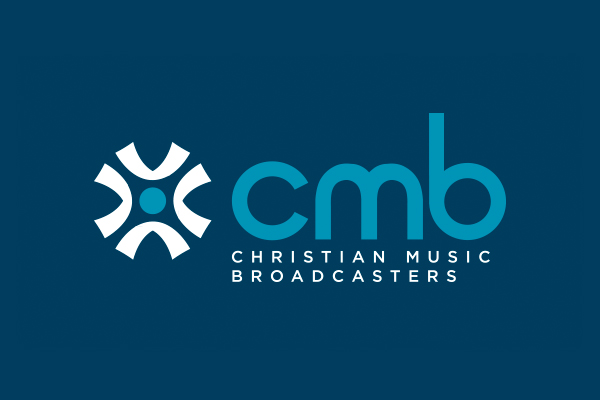 Broadcasters organization to produce a special edition of Techsurvey for this expanding format.
Broadcasters organization to produce a special edition of Techsurvey for this expanding format.
And of course, there’s Classic Rock, the format we developed back in the early 80’s. So, the last thing I should be doing is skipping over headlines about the longevity and resilience of a format most observers claimed “wouldn’t last.”
As Inside Radio observed, “Classic Rock has the best story to tell. It’s added 35 stations for a 5.9% increase that pushes the format from 10th to ninth-ranked. Since November 2021, total stations have literally been on the up-and-up, gaining each month, including two more converts in April.”
Here’s the chart showing format county from last month, compared to one year ago.
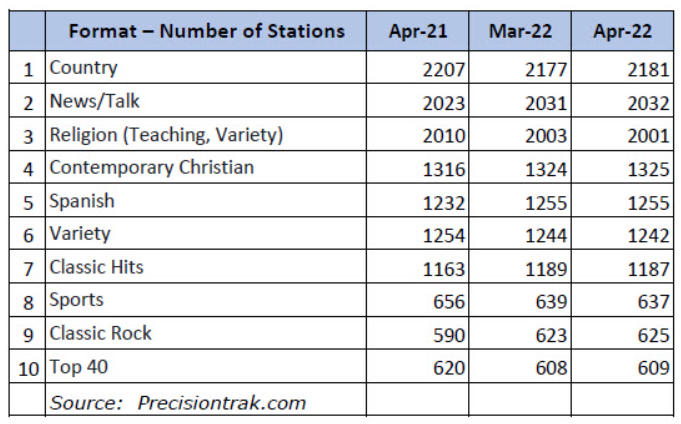 It’s also noteworthy that Classic Hits – Classic Rock’s first cousin – has added 24 stations YOY. So, taking a liberty and adding these two gold-based formats together, we’re looking at 1,812 stations good for a solid fourth place, and among music formats, only behind Country.
It’s also noteworthy that Classic Hits – Classic Rock’s first cousin – has added 24 stations YOY. So, taking a liberty and adding these two gold-based formats together, we’re looking at 1,812 stations good for a solid fourth place, and among music formats, only behind Country.
Not bad for a format many predicted would burn out after just a year or so, unable to sustain itself without a study diet of “currents.” But like the slogan promises, the music “stood the test of time.” And thanks to a lot of great programmers and committed owners, Classic Rock has more than endured. As the chart reminds us, it has thrived.
Ironically, I ran into my first Classic Rock client while sipping my grandé dark roast on Sunday. Bob Ottaway and his PD, Jeff Crowe, were the first to try the longshot format of 1985, Classic Rock. They were trying to compete in AC up against some big players in Lansing, Michigan. Licensed to nearby Charlotte (pronounced shar-LOT), WMMQ was a lowly Class A station that was always near the bottom of the ratings. Yes, your 80-to-1 shot.
 Exactly 37 years this month, I spoke at the Great Lakes Radio Conference at Central Michigan University in Mt. Pleasant, and then hopped in my Mazda RX-7 and drove over to WMMQ to sign on the new format. At the time, the station’s home was a shabby single trailer (what is it about ME and trailers?), and honestly, when I pulled up to the station and actually saw it for the first time, my heart sank.
Exactly 37 years this month, I spoke at the Great Lakes Radio Conference at Central Michigan University in Mt. Pleasant, and then hopped in my Mazda RX-7 and drove over to WMMQ to sign on the new format. At the time, the station’s home was a shabby single trailer (what is it about ME and trailers?), and honestly, when I pulled up to the station and actually saw it for the first time, my heart sank.
We originally cut our deal in a hip East Lansing restaurant, Beggar’s Banquet. And all the prep work was done outside the station (mostly in Jeff’s apartment), keeping the shroud of secrecy. We even drove down to Ohio to buy all the records outside the market, lest anyone in Lansing get wind of WMMQ’s secret plan. In retrospect, I think Bob wanted to make sure I didn’t actually see that trailer until “the day of” – too late to back out of the deal.
In retrospect, Bob might not have had a lot of options, but nonetheless, he took a chance on this longshot. And as he said in a story on our website, it was a life-changing moment for both of us.
But in a matter of days, the buzz spread, and MMQ was off to the races. All these years later, it’s still in format and WMMQ is very much a dominant player in the Lansing market. The frequency was moved to 94.9 a number of years ago, and the station is now owned by Townsquare, great stewards of America’s first FM Classic Rock station.
Why has Classic Rock endured for going on four decades? Of course, it’s about the content – the music. How else can you explain the format’s ability to not just sustain itself, but to thrive against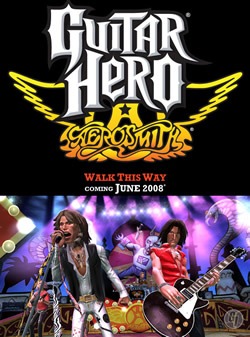 all odds? The music truly is the best that was ever made, and its marketing in TV, movies, and even commercial soundtracks has helped expose it to young audiences over these last many years.
all odds? The music truly is the best that was ever made, and its marketing in TV, movies, and even commercial soundtracks has helped expose it to young audiences over these last many years.
And its presence in other media – games like “Guitar Hero,” another amazing sensation – has helped keep the music that first came out during the Nixon, Ford, and Carter administrations stay “current.” How many kids discovered Classic Rock artists as a result of multimedia phenomena, YouTube videos, and now even NFTs?

Speaking of which, just last week, I saw a story about how two seemingly unlikely partners just cut a joint deal. LEGO has teamed with the Rolling Stones, commemorating the band’s 60th anniversary.
It’s a new LEGO® Art set that lets you build the band’s famous tongue logo in that classic brick form. The famous lips trademark was designed by John Pasche back in 1970.
In an interview with LEGO, Pasche remarked, “Who would have believed, 50 odd years ago…that design would be made into a LEGO piece? Wow!”
Wow! indeed.
The Stones LEGO® Art set is available June 1 on LEGO.com. Something tells me it might make a pretty cool giveaway item for certain radio stations we’re all familiar with.
Over coffee, Bob Ottaway and I reminisced last weekend about how WMMQ’s success and how longshots can actually come home. It also hasn’t escaped my attention that a new documentary about the amazing rise of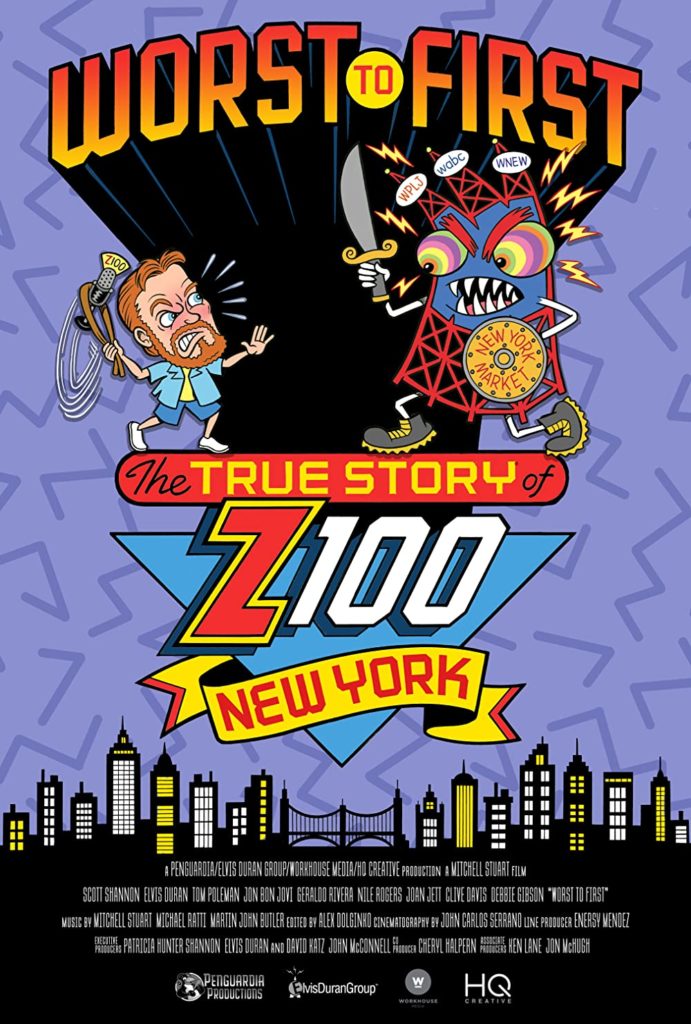 Z1oo is making the rounds, being shown this week at RadioDays Europe. Well named, “Worst to First: The True Story of Z100, New York,” charts mastermind Scott Shannon’s domination of New York City radio. Z100’s ascent to the top of the nation’s largest market was another of those unlikely underdog stories that could only happen in horse racing and radio.
Z1oo is making the rounds, being shown this week at RadioDays Europe. Well named, “Worst to First: The True Story of Z100, New York,” charts mastermind Scott Shannon’s domination of New York City radio. Z100’s ascent to the top of the nation’s largest market was another of those unlikely underdog stories that could only happen in horse racing and radio.
I know a number of you have experienced your own impossible comebacks or amazing rises from the ashes. They may not be common in other industries, but in horse racing and radio, they are legendary.
And that should be a reminder to all of us it can happen again. And frankly, it would be a welcome change from the usual. A look at the Inside Radio chart tells us American radio hasn’t had a hit format since Jack-FM, known by its formal name, “Variety Hits.” The first of these stations signed on in the U.S. in 2004, but was originally in Canada before making the journey south.
While other formats have come and gone, none has stuck as a mass appeal player alongside Country, Top 40, Adult Contemporary, Classic Rock, and the other “usual suspects.”
Some might argue broadcast radio in America has lost some of its punch, making it even unlikelier that a new phenomenon could actually break through.
But perhaps the same thing could be said of an even older industry – automobiles. And somehow, a dark horse named Elon Musk and his Tesla has redefined cars – how they’re made, sold, marketed, and updated.
Tesla has redefined cars – how they’re made, sold, marketed, and updated.
Is there a new format out there we somehow haven’t thought of? Or maybe the format exists but is being championed by an unknown who can’t get the industry’s attention. Like me in the early 80’s.
It is out there. And we have to challenge ourselves to get it on the air, even if it defies the odds and is impossibly back in the pack.
Radio is an industry in dire need of a Rich Strike, a dark horse that can go from worst to first.
I’d put money on it.
Whether you’re a horse racing fan or not, this amazing finish by 80-to-1 Rich Strike will take your breath away. Epicenter was a favorite to win the Derby.
The overhead view makes Rich Strike’s comeback for the upset @KentuckyDerby win look even more incredible. 😮 #KyDerby | @ChurchillDowns pic.twitter.com/iDfkGVZS0O
— NBC Sports (@NBCSports) May 8, 2022
- Media And Technology In 2025: Believe It Or Not! - April 18, 2025
- In Radio, You Just Never Know - April 17, 2025
- The Secret To Making A Great Podcast (And Great Radio) - April 16, 2025




I was there at my first ( and to date) only Great Lakes Radio Conference. Your speech was a major influence on me getting deeper into this “radio thing.” Within a month, I was MD at the student station at my school and picked up a spot doing overnights and weekends at the school’s NPR affiliate. Thanks for inspiring me and help in setting me on an incredible journey for the next few years.
Kurt, I can’t tell you how much I appreciate knowing that. I spoke at several of those, thanks to ME being mentored by Dick Kernen and Dr. Joe Misiewicz (who taught at CMU at the time). If it wasn’t for that conference, I wouldn’t have launched the Classic Rock format. Thanks for letting me know.
The 50’s and 60’s were the birth of Classic Hits, Classic Rock and special Softrock Album Cuts. I was a kid, then, and a slightly older kid now. That was before automation, voice tracking, home studios and internet. Local connection and information has hugely advanced. My running long shot is a rescued orphan AM signal, running in the New Haven race on a long wire above a dynamite shack at a goat yoga farm, getting 25 miles over the air, on Alexa and heard anywhere in the world. It’s very listenable, all pro volunteer and highly cost efficient. Quite the 24/7 aircheck and Imagine if The X – with more elements, information, presentation and personality added got
plugged into a big signal or three. What do you think? 1220watx.com. And, they’re off!
Clark, it sounds like something I might enjoy listening to.
I’ve listened to it and it’s great, Fred–some serious “throwback” classics! Just tell Alexa to “enable twelve-twenty-w-a-t-x” the first time. After that you’re all set. Be prepared to hear songs you completely forgot. Great work on Clark’s part.
Boy, does this take me back. I was doing the only contemporary Christian music program in town early in my radio career. My boss asked me to start a show on what otherwise was a Christian talk/teaching station. I just did the same fun, high-energy boss/top 40 kind of radio I grew up with–the only radio I knew–only with Christian music. And I’d listened to enough radio and won enough contests growing up to know something special was happening with the show. There were even a couple write-ups on me in the newspaper. I had a contest going on one night that had every contest line lit up, every office line (the number not given out on the air) lit up–and literally people stopping off the road and coming up to the station. I’d also emceed enough standing-room only concerts to know the audience and electricity for the format was there. I prepped my materials and started calling on some stations to try to convince someone I really had something worth checking into. I got three “sniffs”–one quite serious with an owner who met with me both at his home and office several times. In the end, it didn’t happen. (Guess I didn’t have that Fred Jacobs charm.) I can’t say I don’t take some satisfaction in seeing the format I was trying to convince anyone was viable so many decades ago is now the fourth most common. But I sure think I could have led some owner to their own “Rich Strike” had I gotten the opportunity. Great read, as always, Fred.
Is that the same WMMQ that’s been getting its butt kicked in the demo by Active Rocker Q106 for several books in a row now? Asking for a friend 😉
You’ve given me a great idea, Terry. Time to pitch MMQ on a consulting deal. Say hi to your friend for me. 🙂